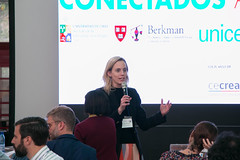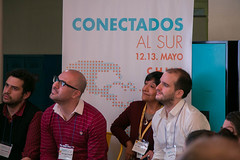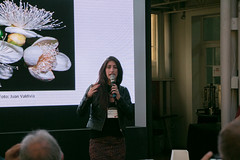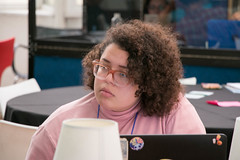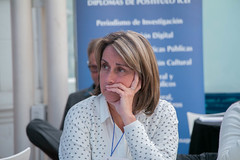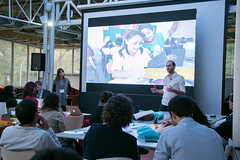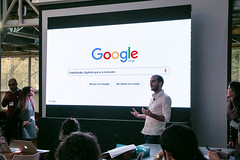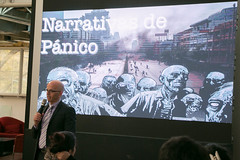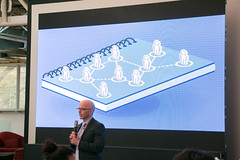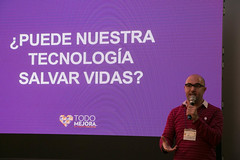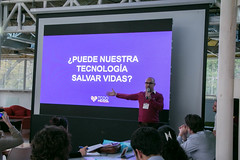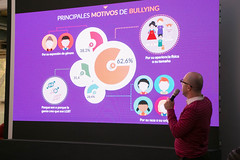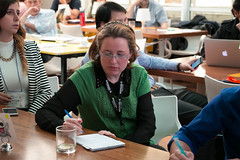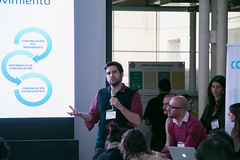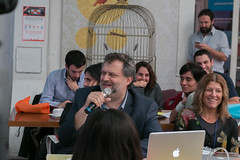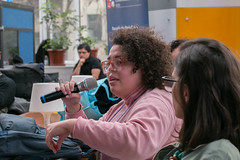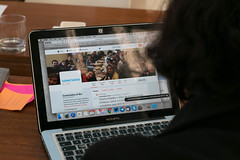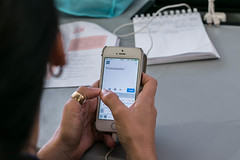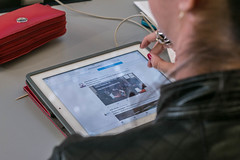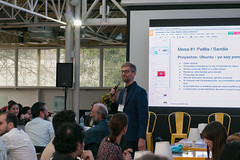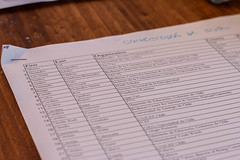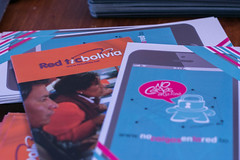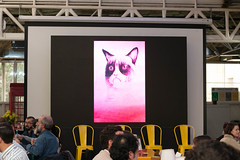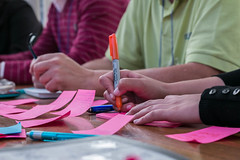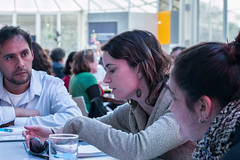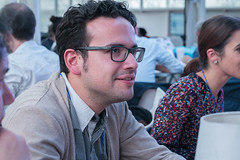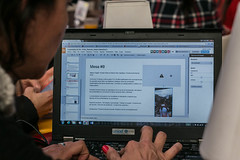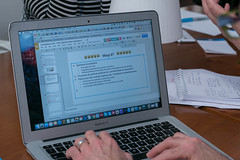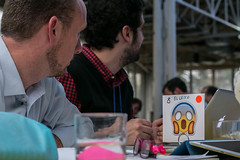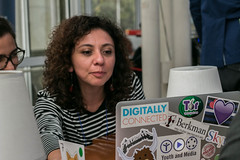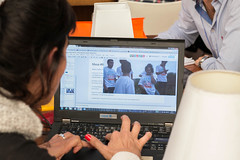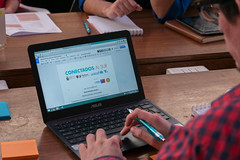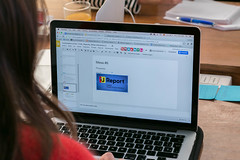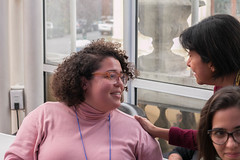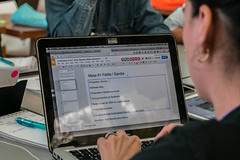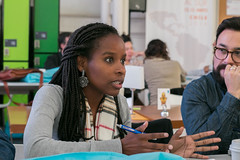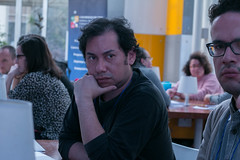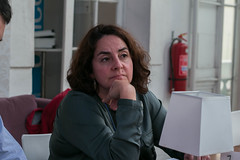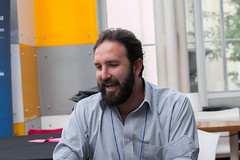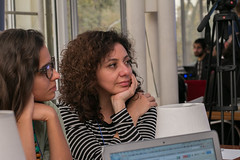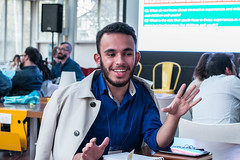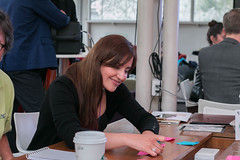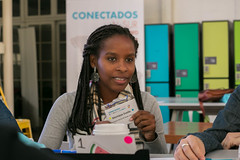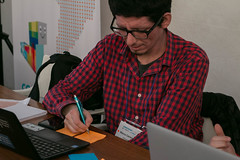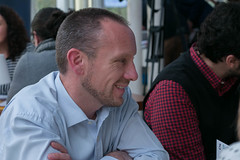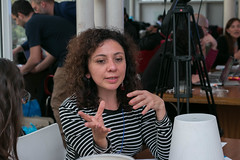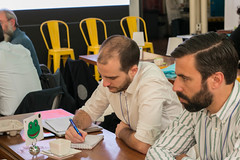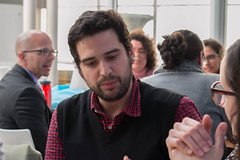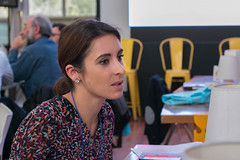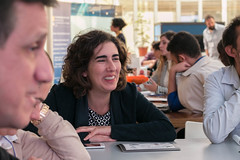(1) Mapping of Global Concepts and Frameworks
To better understand how well-being is conceptualized by experts from different disciplines and different regions of the world, we are currently mapping a wide array of well-being and similar frameworks such as “good life”, Ubuntu, “quality of life”. Based on the mapping and the consultations, our goal is to explore how our own findings relate to other work in the field, such as that from the OECD and World Economic Forum. For now, we are approaching “well-being” in a holistic way that spans beyond mental or physical health, to include, for instance, the quality of youth’s education, living conditions, and social interactions.
Team (a-z): Sandra Cortesi, Melyssa Eigen, Urs Gasser, Alexa Hasse, Pedro Maddens Toscano
How you may contribute: Are you aware of an interesting well-being concept or framework you think we should include in our mapping? If so, we would love to hear from you! Please share it with youthandmedia@cyber.harvard.edu.
(2) Consultations with Youth about their Perspectives on Well-Being
Under the auspices of a joint The Lancet and Financial Times Commission — Governing health futures 2030: Growing up in a digital world — our team is engaging young people in consultations around the concept of “well-being.” Consultations are centered around the notion of subjective well-being, and the conceptual understanding of well-being and the role digital technologies play in it. Further, we intend to explore in what ways COVID-19 may have impacted people’s notion of well-being. The results are intended to inform the Commission’s future work. In addition to being an essential new area of exploration for Youth and Media, the method itself will be shared in form of a guide to help academics, governments, civil society, and additional stakeholders replicate the methodological approach and more effectively incorporate youth’s perspectives into strategy and decision-making around well-being.
Team (a-z): Jeigh Billingy, Sandra Cortesi, Urs Gasser, Alexa Hasse, Maya Malik, Sabelo Mhlambi
How you may contribute: If you might be interested in working with us as a Research Assistant on this project, please see here to learn more about what the role entails, eligibility criteria, and how to apply. (Note: If you are a student currently not enrolled at Harvard Law School, please reach out to Sandra Cortesi at scortesi@cyber.harvard.edu.)
Additionally, if you are an educator in a school or afterschool program and may be interested in having your students participate in our focus groups, or you might know of an educator who may be interested, please reach out to Sandra Cortesi at scortesi@cyber.harvard.edu.
(3) Consultations with Youth in Latin America About Information Quality and their Perspectives on Health Information
As part of a collaborative project with the Hablatam team, supported and in collaboration with the Wikimedia Foundation, we are engaging young people in consultations to explore how various changes in the online information ecosystem (such as the lack of traditional gatekeepers) impact how youth think about and engage (e.g., find, interpret, evaluate, create, and share) with health information online and what role other concepts such as trustworthiness, accessibility, and shareability may play.
Team (a-z): Lionel Brossi, Ana Maria Castillo, Sandra Cortesi, Urs Gasser, Alexa Hasse, Andres Lombana-Bermudez, Melanie Tan
How you may contribute: If you are based in Latin America and you might be interested in helping to host virtual focus group sessions with a group of youth (12-18 years old), please reach out to Sandra Cortesi at scortesi@cyber.harvard.edu, and Lionel Brossi at lionel.brossi@uchile.cl, with the subject line “Latin America Youth Consultations.”
(4) Well-being Expressed through Art and Illustrations
In collaboration with our YaM Illustrators, we attempt to use art to express ideas about the different areas of well-being, function or manifest in people’s lives. Multiple illustrations for each area have been created to show the range of factors that impact well-being (e.g., physical health, social interactions, quality of education).
Here at YaM we understand that art is a tool many of us use to understand the world around us, express ourselves, and share information. On most of our projects, there is a constant collaboration between researcher, artist, and, sometimes, arts-based researchers to make sense of our world. Youth and Media illustrators interpret research into art in the hope that the addition of the visual perspective will enrich, emphasize, or clarify the text. Adding images to the research invites viewers to connect with it on more levels and see stories they might not have envisioned otherwise.
Team (a-z): Euan Brown, Rebecca Smith, Melanie Tan, Claudia Thomas



